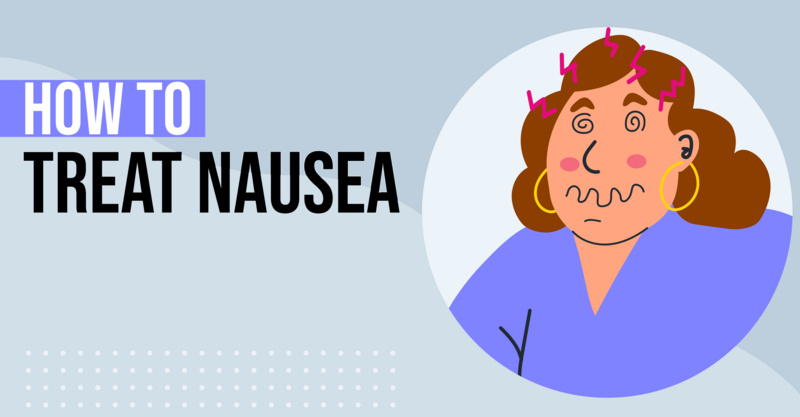Key Points
- Peanut allergies are a serious health concern, potentially causing life-threatening reactions such as anaphylaxis. Symptoms can vary from mild, like hives and itching, to severe.
- Approximately 1% of Americans, including 1 in 50 children, suffer from tree nut allergies, including peanuts.
- The causes of peanut allergies are complex and not fully understood, but may involve genetic predisposition, early exposure, immune system response, and environmental factors.
- The best way to manage a peanut allergy is to avoid peanuts and peanut-containing products, and to have an emergency action plan in place.
- While there is no known prevention for peanut allergies, early introduction of peanuts to infants may help reduce the risk in some high-risk individuals.
Having a peanut butter allergy can be a life-altering diagnosis because exposure to peanuts or peanut butter can lead to severe symptoms — even death. For those who have a peanut allergy and parents of children with a peanut butter allergy, understanding the causes, symptoms, and treatment is essential for living a happy and productive life despite this allergy. According to the Children’s Hospital of Philidelphia (CHOP), knowing what to do if an exposure occurs can also save precious minutes during a potentially life-threatening reaction.
Continue reading to gain valuable insights into managing and addressing this prevalent food allergy.
What Is a Peanut Allergy?
A peanut allergy is an adverse immune response to peanut protein, according to CHOP. They explain that when someone with a peanut allergy comes into contact with peanut protein, their immune system mistakenly identifies the proteins as harmful and triggers a range of symptoms, which can vary from mild to severe. People who have a "tree nut allergy" will also be allergic to peanut butter and other foods that have peanuts in the ingredients. Around 1% of the American population, including 1 in 50 children, have a tree nut allergy, according to the American Academy of Asthma, Allergy, and Immunology (AAAAI).
These symptoms may include hives, itching, swelling, digestive issues, and in severe cases, anaphylaxis, which is a life-threatening condition that requires immediate medical attention. Having a peanut allergy can be a lifelong allergy, so CHOP notes that the best way to manage it is to avoid peanuts and products containing peanuts. They also note that if you suspect a peanut allergy, it's important to consult a healthcare professional for proper diagnosis and management.
What Are the Symptoms of a Peanut Allergy?
The symptoms of a peanut allergy can vary widely in severity, according to the Mayo Clinic. Symptoms may include:
-
Skin reactions such as hives, redness, or swelling
-
Itching or tingling in or around the mouth and throat
-
Shortness of breath or wheezing
-
Runny or congested nose
-
Tightening of the throat
-
Anaphylaxis — a severe and potentially life-threatening reaction that can include a rapid drop in blood pressure, loss of consciousness, and constriction of the airways
The Mayo Clinic also notes that symptoms can occur within minutes of exposure to peanuts and can vary from person to person. So, if you suspect a peanut allergy, it's important to know what symptoms to look out for and when to seek medical treatment.
What Is Anaphylaxis?
Anaphylaxis is a severe, potentially life-threatening allergic reaction that can occur quickly after exposure to an allergen, such as peanuts. It can affect multiple systems in the body and may lead to a range of symptoms, including:
-
Constriction of the airways, leading to difficulty breathing
-
A rapid drop in blood pressure, causing dizziness or fainting
-
Racing heartbeat
-
Severe hives or skin reactions
-
Swelling of the throat, which can obstruct the airway
-
Nausea, vomiting, or diarrhea
Anaphylaxis requires immediate medical attention, and if left untreated, it can be fatal. Anyone experiencing symptoms of anaphylaxis should seek emergency medical care, and individuals at risk of anaphylaxis should carry an epinephrine auto-injector at all times. Prompt treatment with epinephrine can help reverse the symptoms of anaphylaxis and prevent further complications.
What Are Peanut Allergy Main Causes?
Peanut allergies are caused by an abnormal immune response to peanut proteins. The exact reasons why some individuals develop peanut allergies while others do not are not fully understood, according to the Mayo Clinic, but they explain that it is believed to involve a combination of a few factors, including:
-
Genetic predisposition
-
Early exposure
-
Immune system response
-
Environmental factors
It's important to note that the causes of peanut allergies are complex and not fully understood, however, research in this area is ongoing according to the AAAAI.
How Can Peanut Allergies Be Triggered?
According to the Mayo Clinic, peanut allergies can be triggered in several ways, including:
-
Direct contact: Directly consuming peanuts or peanut-containing products — even small amounts of peanuts or peanut residue.
-
Cross-contact: Cross-contact occurs when a food that does not contain peanuts comes into contact with peanuts or peanut residue, leading to accidental ingestion of peanuts. This can happen during food preparation, handling, or processing.
-
Inhalation: In some cases, inhaling airborne particles of peanuts, such as peanut dust or aerosolized peanut proteins, can trigger an allergic reaction, particularly in individuals who are highly sensitive to peanut proteins.
Individuals with peanut allergies need to be vigilant about reading food labels, asking about ingredients when dining out, and being aware of potential sources of cross-contact. Additionally, carrying an epinephrine auto-injector and having an emergency action plan in place is crucial for managing accidental exposure to peanuts, according to the Mayo Clinic.
How Is a Peanut Allergy Diagnosed?
A peanut allergy is a common food allergy, according to the Mayo Clinic. They note that it is typically diagnosed through a combination of medical history, physical examination, and specific food allergy testing. Allergy testing can include skin prick tests or blood tests, according to AAAAI. These tests can help identify specific allergens, including peanut proteins.
Another common allergy test is the oral food challenge, according to the AAAAI. An oral food challenge is usually conducted under the direct supervision of an allergist, they note. During this test, the individual consumes gradually increasing amounts of peanuts to determine if an allergic reaction occurs.
If a peanut allergy is suspected, it's crucial to consult an allergist or immunologist for proper diagnosis and management, according to the Mayo Clinic. They can provide personalized guidance on allergy testing, treatment options, and developing an individualized management plan.
How Can I Prevent a Peanut Allergy?
Currently, there is no known method to prevent the development of a peanut allergy, according to AAAAI. However, early introduction of peanuts to infants, under the guidance of a healthcare professional, may help reduce the risk of developing a peanut allergy in some high-risk individuals, they note. It's important to consult with a pediatrician or allergist before introducing peanuts to infants, especially if there is a family history of allergies.
Additionally, oral immunotherapy is being studied as a potential approach to desensitize individuals with peanut allergies, according to the Mayo Clinic. However, oral immunotherapy should only be considered under the guidance of a qualified allergist or immunologist, as it carries risks and requires close monitoring.
When Should You See a Doctor?
It is important to see a doctor if you suspect that you or someone else may have a peanut allergy — especially if exposure to peanuts has occurred. Some situations that require immediate medical attention, according to the Mayo Clinic, include:
-
Experiencing symptoms of a peanut allergy after consuming peanuts or peanut-containing products, such as hives, swelling, difficulty breathing, or digestive issues.
-
If you or someone else has a known peanut allergy and accidentally ingests peanuts, leading to an allergic reaction.
-
If there are concerns about potential peanut allergy in infants or young children, especially if there is a family history of nut allergies or other food allergies.
Additionally, the Mayo Clinic notes that it's important to consult a doctor to discuss a management plan for peanut allergies, including obtaining a proper diagnosis, developing an emergency action plan, and receiving guidance on avoiding peanuts and managing potential exposures.
For a medical emergency, such as symptoms of an allergic reaction, dial 911 or visit your closest emergency room immediately.
Frequently asked questions
How do you know if you're allergic to peanut butter?
According to the Mayo Clinic, you could be allergic to peanut butter if you experience symptoms such as itching, hives, swelling, digestive issues, or difficulty breathing after consuming peanut butter or products containing peanuts. These symptoms may occur shortly after ingestion and can vary in severity.
If you suspect a peanut butter allergy, AAAAI notes that it's important to seek medical advice from a healthcare professional, such as an allergist or immunologist, for proper diagnosis and management. Allergy testing, including skin prick tests or blood tests, can help identify specific allergens and determine if you have a peanut allergy. You could also be a candidate for an oral food challenge test.
Can peanut allergy go away?
Some food sensitivities decrease with age, according to the AAAAI, however, peanut allergies are typically lifelong. However, some research has shown that some individuals may outgrow their peanut allergies over time. The likelihood of outgrowing a peanut allergy varies from person to person and is influenced by factors such as the severity of the allergy, individual immune response, and genetic predisposition.
It's important for individuals with peanut allergies to work closely with a healthcare professional, such as an allergist or immunologist, to monitor their allergy status over time. They can conduct allergy testing and provide guidance on potential changes in allergy status. It's crucial to consult a healthcare professional for personalized advice on managing peanut allergies and to determine if there have been any changes in allergy status or if you are a candidate for allergy immunotherapy which can help lower your sensitivity to allergens.
What should I avoid if I have a peanut allergy?
If you have a peanut allergy, it's important to avoid peanuts and peanut-containing products to prevent allergic reactions, according to the Mayo Clinic. Additionally, they note that it's essential to be vigilant about reading food labels and being aware of potential sources of cross-contact with peanuts. Some common foods and products to avoid if you have a peanut allergy include:
- Whole peanuts
- Peanut butter
- Peanut oil
- Peanut flour
- Mixed nuts containing peanuts
- Foods processed in facilities that also handle peanuts
- Ethnic foods and sauces that may contain peanuts
- Baked goods and candies that may contain peanuts or peanut traces
- Some natural and artificial flavorings
It's important to carefully read food labels for any mention of peanuts or potential cross-contact with peanuts, and when dining out. It is also important to ask about ingredients and food preparation practices to avoid accidental exposure to peanuts, according to the Mayo Clinic. If you have a peanut allergy, working with a healthcare professional, such as an allergist, can help you develop a comprehensive management plan and receive personalized guidance on avoiding peanuts and managing potential exposures.
What is a Class 2 peanut allergy?
In the context of peanut allergies, the term "Class 2" typically refers to the classification of specific IgE antibody levels in blood tests, according to the Peanut Institute. They explain that IgE antibodies are immune system proteins that play a key role in allergic reactions. In some allergy testing methods, including specific IgE blood tests, the results may be reported in classes or levels, with Class 2 indicating a moderate level of IgE antibodies specific to peanuts.


 LinkedIn
LinkedIn










